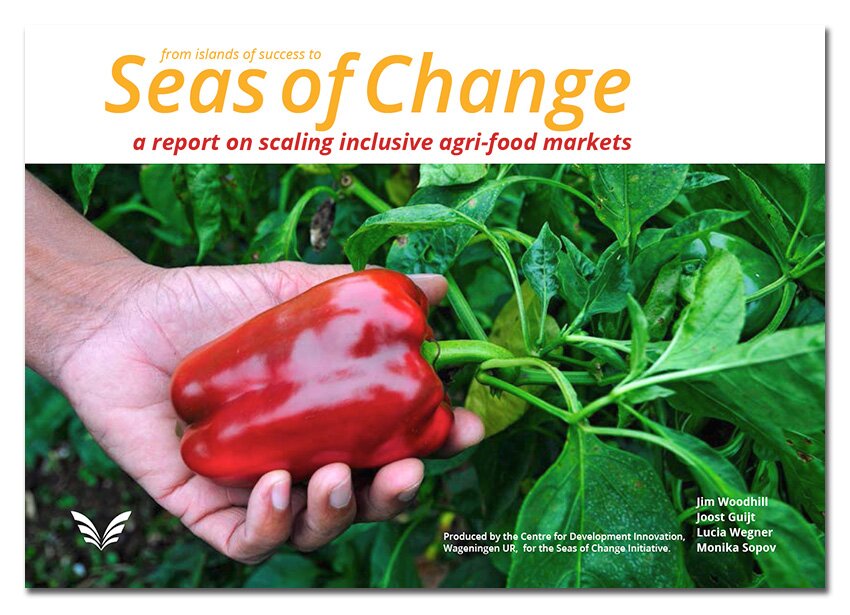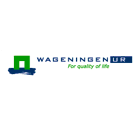Partners
The Seas of Change Initiative consists of the following wide range of international organizations, businesses and research institutes:
The Centre for Development Innovation (part of Wageningen UR)
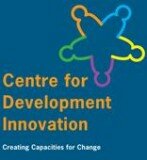 The Centre for Development Innovation is an interdisciplinary and internationally focused unit of the Wageningen UR. The Centre works on processes of innovation and change in the areas of secure and healthy food, adaptive agriculture, sustainable markets and ecosystem governance. Through facilitating innovation, brokering knowledge and supporting capacity development, the Centre helps to link Wageningen UR’s expertise to the global challenges of sustainable and equitable development. The Centre is also coordinating the planning of activities in the Seas of Change Initiative.
The Centre for Development Innovation is an interdisciplinary and internationally focused unit of the Wageningen UR. The Centre works on processes of innovation and change in the areas of secure and healthy food, adaptive agriculture, sustainable markets and ecosystem governance. Through facilitating innovation, brokering knowledge and supporting capacity development, the Centre helps to link Wageningen UR’s expertise to the global challenges of sustainable and equitable development. The Centre is also coordinating the planning of activities in the Seas of Change Initiative.
IFAD
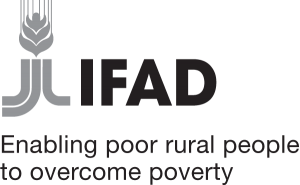 The International Fund for Agricultural Development, IFAD, is a specialized agency of the United Nations. IFAD is dedicated to eradicating rural poverty in developing countries. Working with rural poor people, governments, donors, non-governmental organizatons and many other partners, IFAD focuses on country-specific situations, which can involve increasing rural poor people’s access to financial services, markets, technology, land and other resources.
The International Fund for Agricultural Development, IFAD, is a specialized agency of the United Nations. IFAD is dedicated to eradicating rural poverty in developing countries. Working with rural poor people, governments, donors, non-governmental organizatons and many other partners, IFAD focuses on country-specific situations, which can involve increasing rural poor people’s access to financial services, markets, technology, land and other resources.
Rabobank
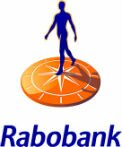 Rabobank group is an international financial services provider operating on the basis of cooperative principles. Rabobank group is among the world’s 30 largest financial institutions and focuses on broad financial services provision in the Netherlands and primarily on the food and agribusiness internationally. Sustained autonomous growth is a leading factor in the strategic course that Rabobank Group aims to steer in the coming years. This strategy centres around one of the Rabobank’s core competences: Food & Agribusiness. Sustainability is thereby at the hart of Raboabnk and integral in who they are and how they operate.
Rabobank group is an international financial services provider operating on the basis of cooperative principles. Rabobank group is among the world’s 30 largest financial institutions and focuses on broad financial services provision in the Netherlands and primarily on the food and agribusiness internationally. Sustained autonomous growth is a leading factor in the strategic course that Rabobank Group aims to steer in the coming years. This strategy centres around one of the Rabobank’s core competences: Food & Agribusiness. Sustainability is thereby at the hart of Raboabnk and integral in who they are and how they operate.
International Finance Corporation (IFC)
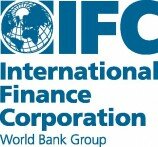 International Finance Corporation, IFC, a member of the World Bank Group, is the largest global development institution focused on the private sector in developing countries. IFC creates opportunity for people to escape poverty and improve their lives. They do so by providing financing to help businesses employ more people and supply essential services, by mobilizing capital from others, and by delivering advisory services to ensure sustainable development.
International Finance Corporation, IFC, a member of the World Bank Group, is the largest global development institution focused on the private sector in developing countries. IFC creates opportunity for people to escape poverty and improve their lives. They do so by providing financing to help businesses employ more people and supply essential services, by mobilizing capital from others, and by delivering advisory services to ensure sustainable development.
Sustainable Food Laboratory
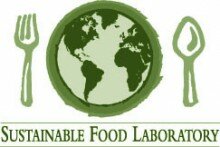 The Sustainable Food Lab is a consortium of business, non-profit and public organizations working together to accelerate the shift towards sustainability. The Sustainable Food Lab facilitates market-based solutions to the key issues – including climate, soil, poverty, and water – that are necessary for a healthy and sustainable food system to feed a growing world. The Sustainable Food Lab uses collaborative learning to incubate innovation at every stage along the supply chain from producing to distributing and selling food.
The Sustainable Food Lab is a consortium of business, non-profit and public organizations working together to accelerate the shift towards sustainability. The Sustainable Food Lab facilitates market-based solutions to the key issues – including climate, soil, poverty, and water – that are necessary for a healthy and sustainable food system to feed a growing world. The Sustainable Food Lab uses collaborative learning to incubate innovation at every stage along the supply chain from producing to distributing and selling food.
Agri-ProFocus
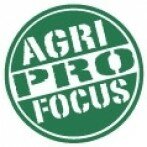 Agri-ProFocus is a partnership that promotes farmer entrepreneurship in developing countries. Their founding members are Dutch organisations who promote farmer entrepreneurship. Each member has an extensive network in developing countries. Agri-ProFocus is the sum of all these networks. By coordinating activities, exchanging information and ideas and undertaking joint action they aspire to improve existing linkages and provide a better service to farmer entrepreneurs in the South.
Agri-ProFocus is a partnership that promotes farmer entrepreneurship in developing countries. Their founding members are Dutch organisations who promote farmer entrepreneurship. Each member has an extensive network in developing countries. Agri-ProFocus is the sum of all these networks. By coordinating activities, exchanging information and ideas and undertaking joint action they aspire to improve existing linkages and provide a better service to farmer entrepreneurs in the South.
BoP Innovation Center
![]() BoP Innovation Center (BoP) is the largest but poorest soci-economic group worldwide with over 4 billion people. They are economically active as consumers, producers, entrepreneurs and employees. The BoP Innovation Center develops, learns about and accelerate programs dedicated to private sector led sustainable innovation at the BoP. Their goal is to facilitate sustainable BoP innovations, and they offer a full range of services through the entire innovation cycle.
BoP Innovation Center (BoP) is the largest but poorest soci-economic group worldwide with over 4 billion people. They are economically active as consumers, producers, entrepreneurs and employees. The BoP Innovation Center develops, learns about and accelerate programs dedicated to private sector led sustainable innovation at the BoP. Their goal is to facilitate sustainable BoP innovations, and they offer a full range of services through the entire innovation cycle.
SNV, Netherlands Development Organization
 SNV is a non-profit, international development organisation, established in the Netherlands. SNV aims to alleviate poverty by enabling those on the lowest incomes to be part of social and economic networks and so increase their income and employment opportunities. More than half of SNV’s work focuses on economic and private sector development, and SNV contributes to improving people’ access to basic services like water and sanitation, energy and education. They achieve both by strengthening local organisations.
SNV is a non-profit, international development organisation, established in the Netherlands. SNV aims to alleviate poverty by enabling those on the lowest incomes to be part of social and economic networks and so increase their income and employment opportunities. More than half of SNV’s work focuses on economic and private sector development, and SNV contributes to improving people’ access to basic services like water and sanitation, energy and education. They achieve both by strengthening local organisations.
IDH, Sustainable Trade Initiative
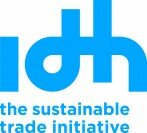 The Dutch Sustainable Trade Initiative aims to improve the sustainability of international supply chains. To this end, IDH works towards tackling social, ecological and economical bottlenecks for first chain actors in developing countries. Governments, private sectors, labour unions and non-governmental organizations jointly implement sector improvement programs, as well as an (inter)sector learning program. IDH searches for links with other chain initiatives, both in the Netherlands and in other countries. Its ambition is act as a catalyst and knowledge broker.
The Dutch Sustainable Trade Initiative aims to improve the sustainability of international supply chains. To this end, IDH works towards tackling social, ecological and economical bottlenecks for first chain actors in developing countries. Governments, private sectors, labour unions and non-governmental organizations jointly implement sector improvement programs, as well as an (inter)sector learning program. IDH searches for links with other chain initiatives, both in the Netherlands and in other countries. Its ambition is act as a catalyst and knowledge broker.
KIT, Royal Tropical Institute
The Dutch Royal Tropical Institute (KIT) is an independent centre of knowledge and expertise in the areas of international and intercultural cooperation, operating at the interface between theory and practice and between policy and implementation. The Institute contributes to sustainable development, poverty alleviation and cultural preservation and exchange. KIT conducts research, organizes training activities, and provides consultancy and information services. A key objective underlying the Institute’s work is to enhance and exchange knowledge of and understanding for different cultures.
CTA, Technical Centre for Agricultural and Rural Cooperation
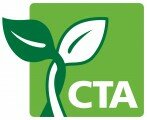 CTA is a joint international institution of the African, Caribbean and Pacific (ACP) Group of States and the European Union (EU). Their mission is to advance food and nutritional security, increase prosperity and encourage sound natural resource management in ACP countries. They provide access to information and knowledge, facilitate policy dialogue and strengthen the capacity of agricultural and rural development institutions and communities.
CTA is a joint international institution of the African, Caribbean and Pacific (ACP) Group of States and the European Union (EU). Their mission is to advance food and nutritional security, increase prosperity and encourage sound natural resource management in ACP countries. They provide access to information and knowledge, facilitate policy dialogue and strengthen the capacity of agricultural and rural development institutions and communities.
LEI, the Agricultural Economics Institute (part of Wageningen UR)
![]() LEI is part of Wageningen UR and aims to promote the quality of food, the living environment and living conditions with international society. LEI works for government and industry developing economic knowledge in the fields of food, agriculture and green space. By undertaking committed, independent and reliable research, LEI provides support for clients faced with making socially and strategically sound policy choices. LEI’s work covers the agricultural sector, fisheries, nature management and the use of green space. An increasing proportion of LEI’s research focuses on international issues.
LEI is part of Wageningen UR and aims to promote the quality of food, the living environment and living conditions with international society. LEI works for government and industry developing economic knowledge in the fields of food, agriculture and green space. By undertaking committed, independent and reliable research, LEI provides support for clients faced with making socially and strategically sound policy choices. LEI’s work covers the agricultural sector, fisheries, nature management and the use of green space. An increasing proportion of LEI’s research focuses on international issues.
Ministry of Foreign Affairs of the Netherlands
![]() The Ministry of Foreign Affairs promotes the interests of the Dutch Kingdom abroad. It coordinates and carries out Dutch foreign policy at its headquarters in the Hague and through its missions abroad. It is likewise the channel through which the Dutch Government communicates with foreign governments and international organisations. The Ministry is actively involved in addressing issues such as poverty reduction, climate change, respect for human rights and the rule of law and conflict. The Netherlands favours an integrated approach to international policy.
The Ministry of Foreign Affairs promotes the interests of the Dutch Kingdom abroad. It coordinates and carries out Dutch foreign policy at its headquarters in the Hague and through its missions abroad. It is likewise the channel through which the Dutch Government communicates with foreign governments and international organisations. The Ministry is actively involved in addressing issues such as poverty reduction, climate change, respect for human rights and the rule of law and conflict. The Netherlands favours an integrated approach to international policy.
Ministry of Economic affairs, Agriculture and Innovation of the Netherlands
 The Ministry of Economic Affairs, Agriculture & Innovation promotes the Netherlands’ position as a leading economy with a world-class agrifood sector. Economic activity and innovation are essential to the prosperity of the Netherlands. The Ministry enhances the country’s long-term competitive strength and facilitates the private sector, which drives the economy. The Ministry takes an expansive view in its approach to economic issues, looking to the environment, the private sector, consumers and beyond national borders.
The Ministry of Economic Affairs, Agriculture & Innovation promotes the Netherlands’ position as a leading economy with a world-class agrifood sector. Economic activity and innovation are essential to the prosperity of the Netherlands. The Ministry enhances the country’s long-term competitive strength and facilitates the private sector, which drives the economy. The Ministry takes an expansive view in its approach to economic issues, looking to the environment, the private sector, consumers and beyond national borders.






